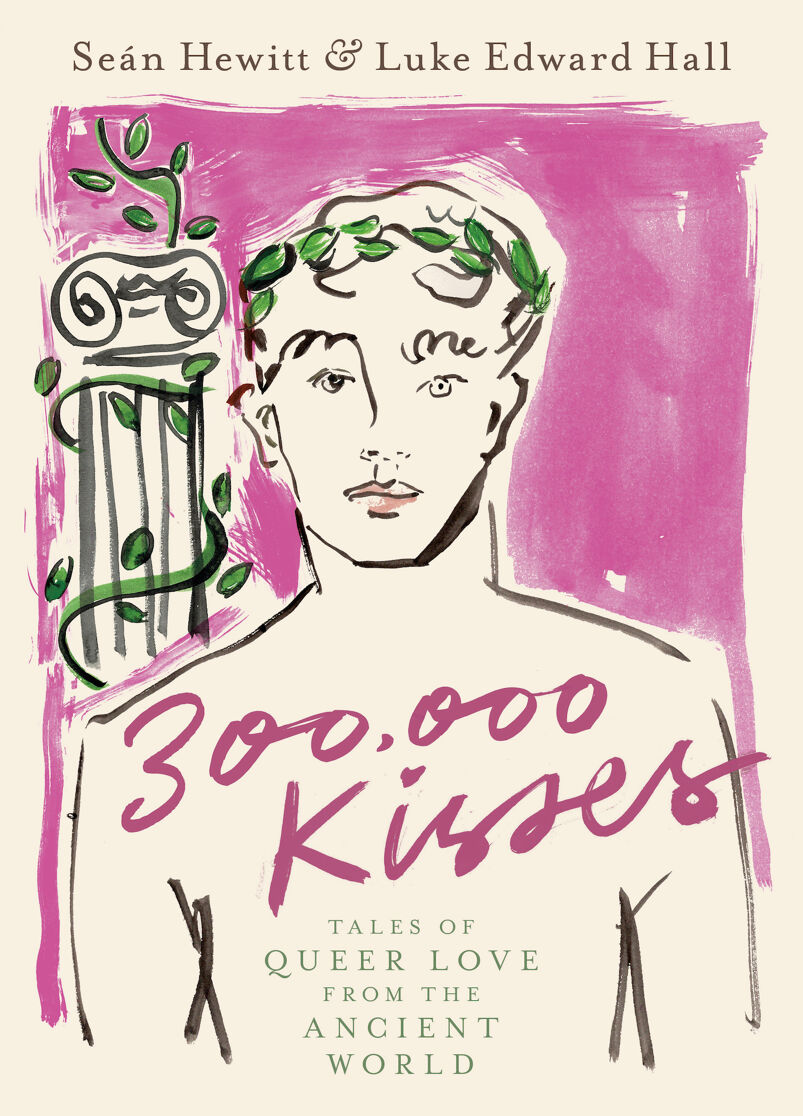
Romance. Tragedy. Grief. Desire. Poet Seán Hewitt and illustrator Luke Edward Hall cover it all in 300,000 Kisses, Tales of Queer Love From an Ancient World. The pair unearths some of the most famous stories and characters from humankind’s earliest writings, and they’re not shying away from the same-sex subtext or overtly queer narratives.
“For queer people, the act of recovering history has often been one of discovering it, too,” writes Hewitt. “You will likely find yourself moved, celebrated, and troubled in equal measure.”
Queerty snagged an exclusive excerpt from the recent release, which comes at a time when an increase in book bans threatens the visibility of LGBTQ+ voices. Hewitt’s translation and Hall’s colorful illustrations make for the perfect bedside read or holiday gift. And if you’re looking for even more ancient tales of queer love, check out Dan Jones’ Queer Heroes of Myth and Legend: A celebration of gay gods, sapphic saints, and queerness through the ages.
Related:
Aristophanes on the desire to lie with men
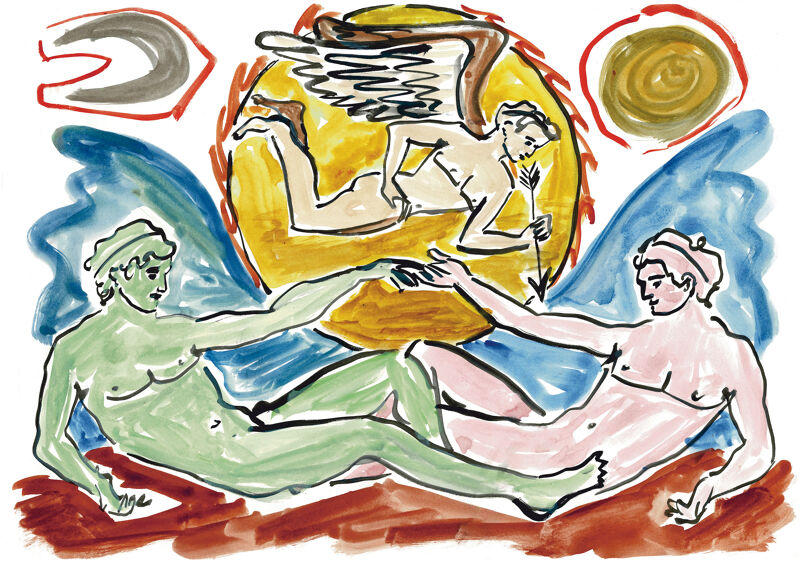
Plato’s Symposium unearths a myth about the creation of love and sexual desire. When Zeus decides to split humans in two, making everyone a living half of themselves, he, in a sense, creates a longing for humans to be re-connected with each other through the act of sexual desire. It is Eros who brings these two male lovers together in Hall’s illustration.
On same-sex attraction, Hewitt writes, “These are by nature the most masculine and the most noble people. Some say they have no shame, but they are wrong: they do not seek other men out of shamelessness, but out of boldness, courage, and masculine virtue.”
Hyancinthus & Apollo — oh, the drama!
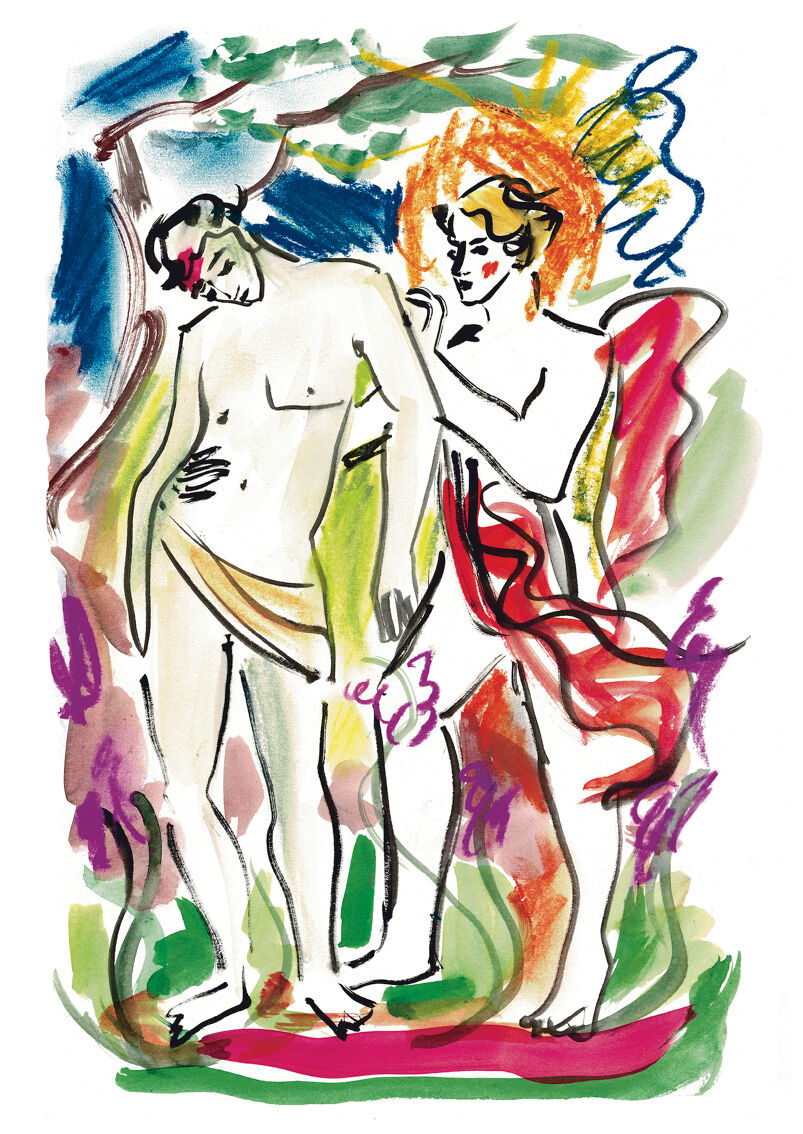
When the God of the Sun, Apollo, decides to enter Earth to be with the man he loves, Hyancinthus, the two men are at first overjoyed. It isn’t until Zephyrus catches wind of the lover’s affair that he is overcome with envy. Zephyrus has Hyancinthus killed. In this illustration, Apollo, helpless and heartbroken, holds onto his slain lover.
“You too, Hyacinthus, might have been lifted
into the sky, had it not been for the fates –
but you, too, are immortal, in a way. When winter
leaves off, and spring comes, and Aries
takes the place of the Pisces, you bloom again
in the fresh grass.”
The great gay debate
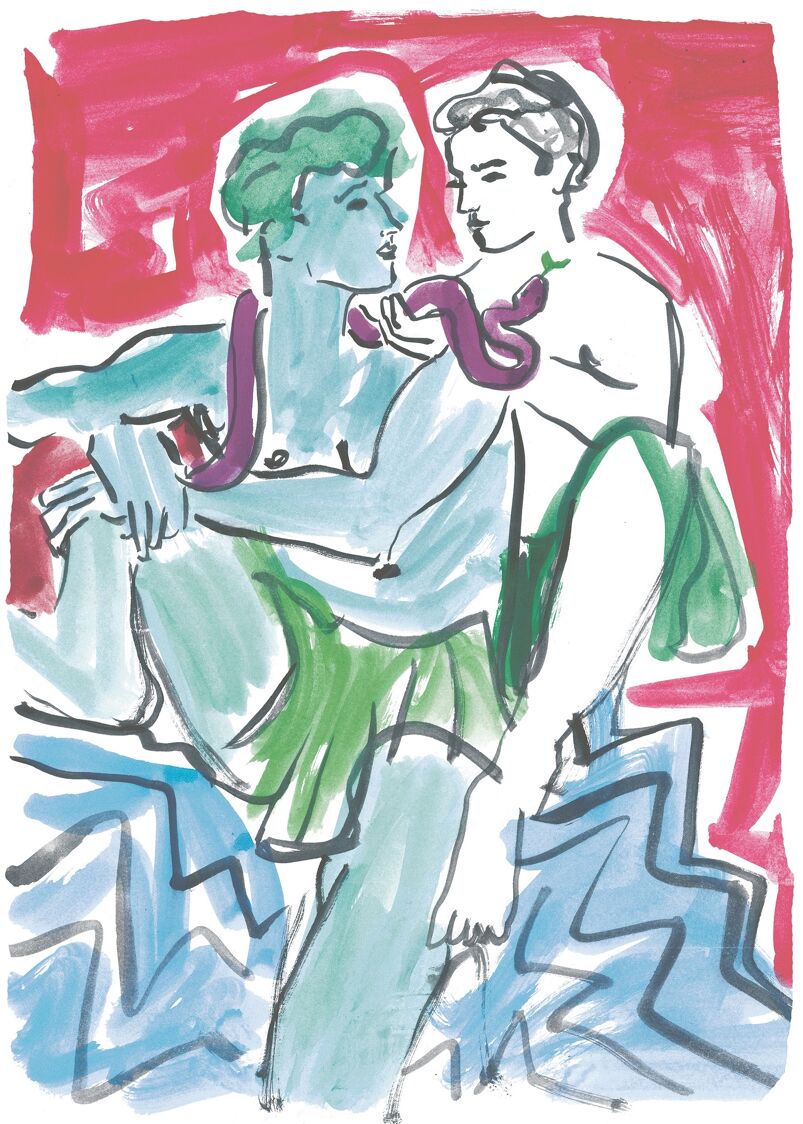
Before RuPaul popularized “reading” as a form of drag currency, Xenophon and other ancient writers engaged in Socratic dialogue, a form of philosophical debate based on real-life people. In a passage from Xenophon’s Symposium, Socrates gives a somewhat tipsy dinner party rant on the contrast between physical attraction and attraction of the mind. As Socrates continues lecturing the dinner guests, it becomes evident he is trying to set up his friend, Callias, with guest of honor Autolycus.
“The passing of time is inescapable, and soon enough youth fades,
and often the love of the body fades with it; but the mind
only grows in wisdom over time, and so love of the
the mind grows with it.”
Alexander the Great’s part-time lover
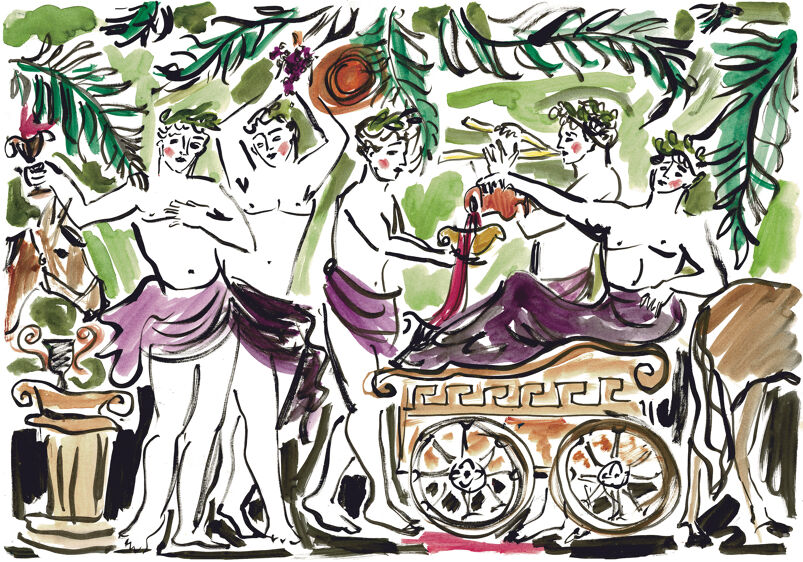
On a seven-day voyage through Carmania, Alexander the Great bond deepens with the men in his company as their voyage turns into a joyous parade filled with dancing and drinking. Alexander gets closer to these men by rolling around with them in the hot sun, concluding with a public kiss with Bagoas, a eunuch in the court of the Persian Empire.
“By the waysides, men stumbled, dazed by the drink and
the sun, and toasted one another. And it wasn’t just drinking
– there was raucous music and dancing and the moving
bronze of bare skin.”
Roman satirist Juvenal on the woes of sex work
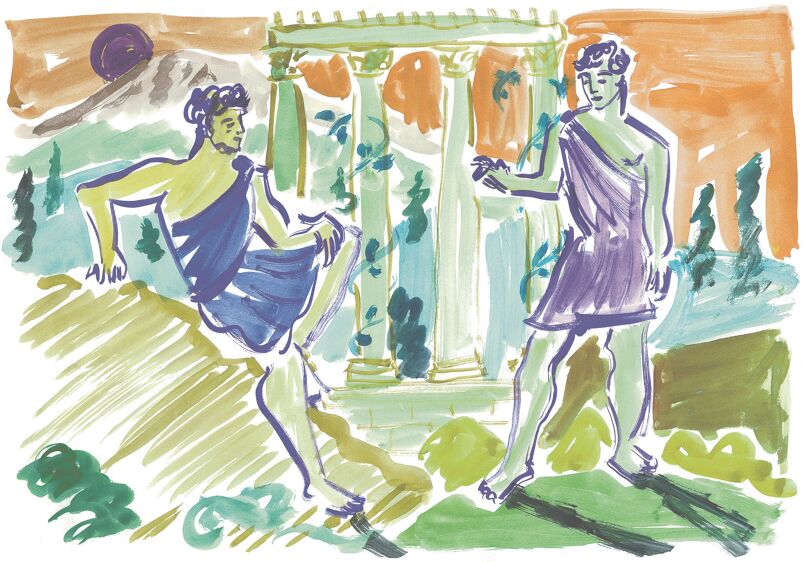
Before Randy Rainbow, Roman satirist Juvenal offered quippy cultural takedowns. In Satire IV, the poet pens a punchy conversation with friend Naevolus, a male sex worker who complains of the compensation discrepancies for his services. With winter on the way, he grows anxious about his rent, confiding that he’s met the needs of many a client, but there’s nothing worse than a cheap trick.
All men are ruled by the Fates, and the Fates guide our privates
as much as they do the rest of our bodies. If your stars
are set against you, it doesn’t matter how big your c*ck is.
It doesn’t matter if Virro drools at the sight of your tool
or if long love-letters arrive every week, protesting
that ‘every man loves a stud’. There’s nothing worse
than a tight-fisted pervert.
Reprinted with permission from 300,000 Kisses: Tales of Queer Love from the Ancient World by Seán Hewitt and Luke Edward Hall, copyright © 2023. Published by Clarkson Potter Publishers, an imprint of Penguin Random House.
This article includes links that may result in a small affiliate share for purchased products, which helps support independent LGBTQ+ media.





















abfab
This is beautiful. Thanks Andrew Sciallo!
Riley
I highly recommend the book… it is gorgeous!
bachy
The illustrations are stunning.